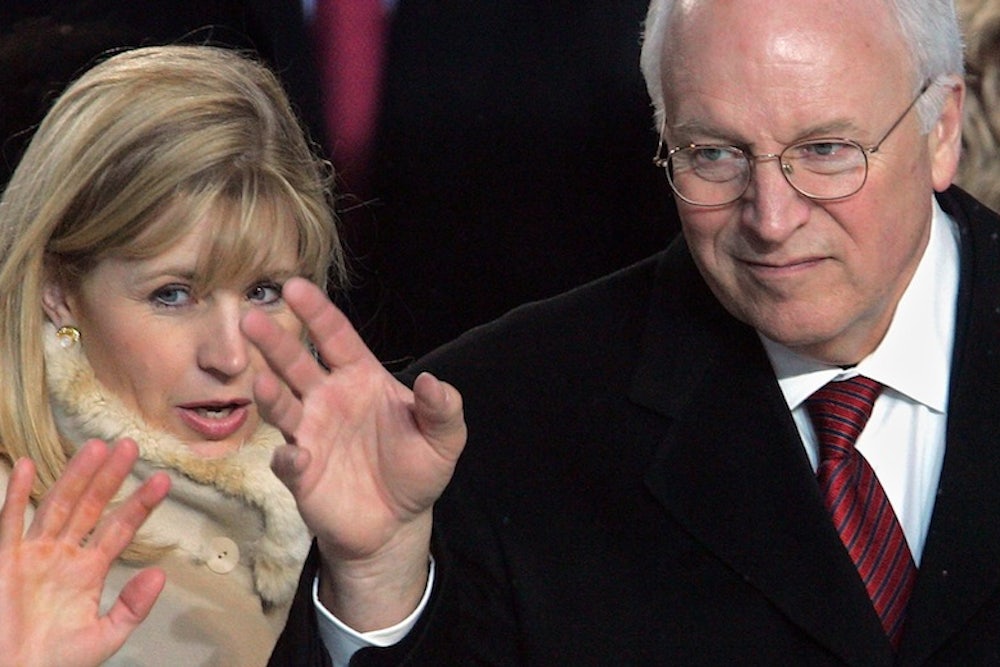For several days now, liberal Iraq war opponents have been justifiably flabbergasted to see Iraq war architects invited on television and quoted in news stories and op-eds to lay blame for Iraq's dissolution at President Obama's feet.
We hit peak outrage today when the Wall Street Journal gave precious column space to Liz and Dick Cheney to write the most amazing sentence of the century: "Rarely has a U.S. president been so wrong about so much at the expense of so many."
I think the left's reaction is self-explanatory and appropriate, and I won't belabor it. But as I hinted earlier this week, there's a crucial media ethics component here that's gone largely uncommented upon. And the key point is that offering Dick Cheney or Doug Feith or Paul Wolfowitz column inches and airtime without also flashing neon culpability disclosures amounts to a conflict-of-interest error these editors and reporters and producers would never allow if they were soliciting somebody from, say, the American Petroleum Institute. But these men are no different, save for the fact that their agendas are deeply personal and not betrayed by terms like "former Deputy Defense Secretary." They are men who want desperately to avoid further recriminations for their actions and to glue their reputations back together if possible.
I don't think they'll succeed. But they're enjoying an entirely inappropriate opportunity thanks to people who should know better. Not everybody's giving them a completely free pass like the conservative WSJ editors. But too many are.
It's hard to come up with a perfect analogy, because so few elective blunders in U.S. history have been so enormous and fewer still have been handed off to victorious opposition leaders by people desperate to wipe their hands clean. But imagine giving Herbert Hoover's top economic adviser column inches to blame the 1934 economy on FDR while billing him as a "former White House economic adviser." Or inviting Mike "Heckuva Job" Brownie to attack New Orleans city officials for the city's economic woes in 2006 as a "former FEMA administrator."
That doesn't mean you can't invite Wolfowitz on television to discuss Iraq. But if you're going to, consider prefacing your first question with, "Mr. Wolfowitz, you helped destroy Iraq from 2003-2005" before asking for his thoughts on that country's current unraveling.
